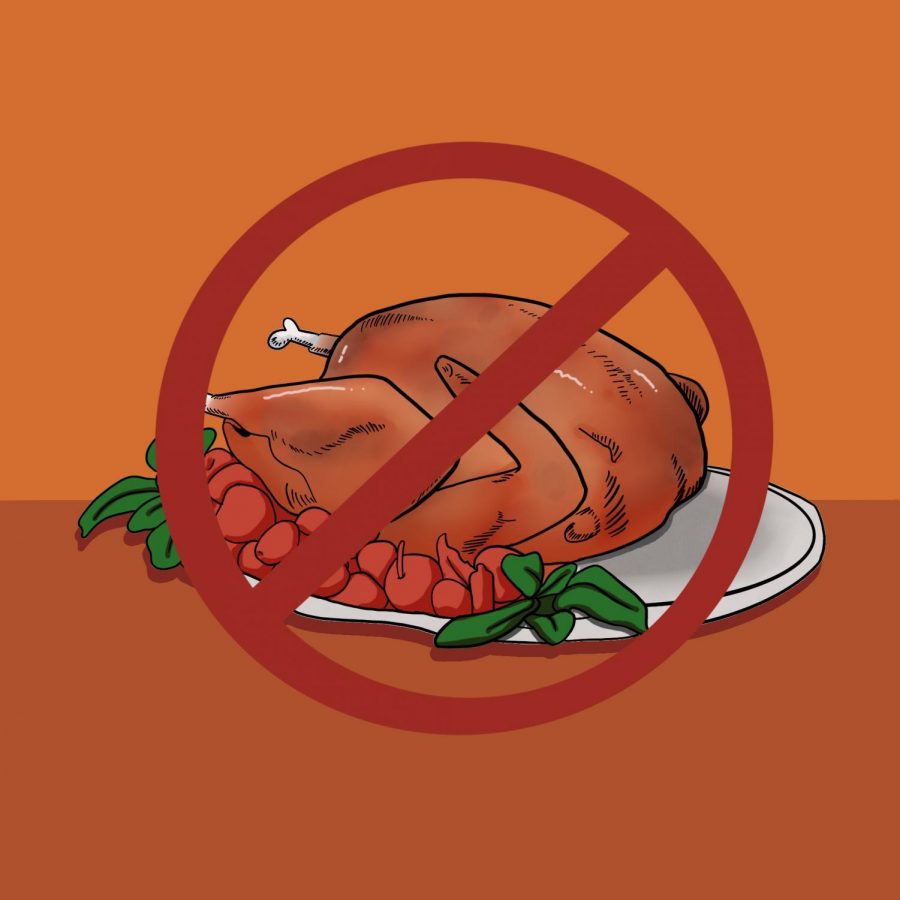Thanksgiving’s origins highlights the impact of inaccurate history
Thanksgiving’s origin has been taught incorrectly, contradicting the real history.
December 3, 2021
On the last Thursday of November, Americans gather to celebrate Thanksgiving. Thanksgiving is a day where family and friends conjoin to share a meal and express gratitude for their blessings. Many excite themselves with elaborate dinner plans and preparations for the holiday season, where people spread cheer to all who celebrate.
Although described as a generous holiday, a lot of people do not perceive it that way.
The truth is, Thanksgiving has been criticized for the past several years because it glamorizes American colonization. The discourse has made it difficult to celebrate the festivities without remembering attaching it to the history.
Before diving into what Thanksgiving should be, we should understand what the first Thanksgiving entailed and why it is controversial. What has been taught in K-12 education contradicts the actual event.
As we know, the first Thanksgiving was a unification between pilgrims and the Indigenous Wampanoag tribe. After years of turmoil, leaders from both sides decide to throw a feast to make peace. The event allowed both sides to gain an understanding and appreciation of each other’s culture. The Wampanoag tribe then gives off their land to the pilgrims and both groups live in harmony.
Although this version sounds pleasing, it is not accurate. The first Thanksgiving did not occur for amicable reasons. It happened out of necessity.
According to an article titled “The Myths of the Thanksgiving Story and the Lasting Damage They Imbue”, the Wampanoag tribe agreed to a formal meeting with the pilgrims because they were enraged with European colonization.
Indigenous tribes were subjected to European brutality years before the Mayflower docked on American soil. Tribes were pillaged for resources; colonizers often slaughtered and diseased Indigenous people without much regard. Those who managed to survive the violence were likely shipped off to Europe and enslaved.
When the pilgrims arrived in America, they attempted to settle within the Wampanoag tribe. Initially skeptical of the pilgrims’ motives, the Wampanoag tribe allowed them to live within their community. However, the tribe’s suspicions were confirmed once the pilgrims tried to evict them from their land.
Additionally, an epidemic crippling the Indigenous population made it easier for rivals to overtake each other’s tribes. Although the Wampanoag leader distrusted the pilgrims, he understood that an alliance could discourage other tribes from invoking violence against them. The Wampanoag leader approached the pilgrims with purpose and not genuine courtesy.
As mentioned, Thanksgiving was never intended to be a day of outpoured gratitude. Despite what we think the holiday should be, glossing over its history is insulting to those whose culture is affected by it.
If anything, Thanksgiving should be a day of remembrance for the Indigenous people decimated by European colonists and not to hoggishly feast on their memories. Traditional foods such as turkey only reinforce the colonial narrative.
It has been far too long for Indigenous Americans to be constantly refused a seat at the table. Their cultural history is undeservingly erased; they deserve better.
Although abolishing Thanksgiving as a holiday would be difficult, transforming it into a solemn matter from a gratuitous festival could build the bridge toward a more accurate telling of American history.


